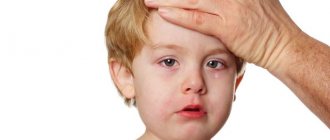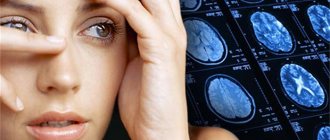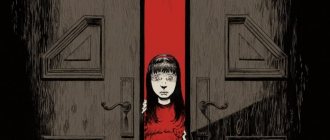Pathological fear is a fear reaction that is disproportionate to the situation and overly long, which the patient can neither explain nor weaken.
Symptoms of fear include:
- Social phobia: fear of social situations (eg, fear of specific groups, fear of speaking or eating in front of others, fear of certain social situations)
- Specific phobia: irrational fear of certain places, objects, situations
- Panic disorder: sudden, “paroxysmal” onset, unexpected intense fear (panic attack) with numerous autonomic and somatic symptoms
- Generalized anxiety disorder: severe states of fear lasting several weeks (rather continuous fear), usually with motor tension (restlessness, trembling, inability to relax) and autonomic hyperreactivity (sweating, tachycardia, dizziness, dry mouth, etc.)
- Secondary fear as a consequence/symptom of various diseases or medications.
Classification
Numerous studies have proven that fear can be caused by various reasons. Depending on this, it is customary to classify such emotions into the following types:
- Biological has primitive roots. It represents the survival instinct. This reaction is characteristic not only of animals, but also of people. In the face of an obvious danger to life, a “fear hormone” begins to be produced at the level of instinct, which allows the body to instantly activate all available resources to combat the threat.
- Social fears include fears acquired as a result of accumulated life experiences. For example, fear of public speaking or medical procedures. This type of reaction can be corrected - in the process of comprehension, logical thinking, it is possible to overcome such fears.
Symptoms
Adrenaline in the blood causes a number of conditions characteristic of the feeling of fear. Thus, this substance helps to increase blood pressure and dilate blood vessels, thereby improving oxygen exchange in internal organs. In turn, increased nutrition of brain tissue helps, as they say, to refresh thoughts and direct forces to find the necessary solution to overcome the current emergency situation. That is why, when a person is very scared, in the first seconds his body tries to assess the threat as accurately as possible, activating all possible resources. In particular, dilation of the pupils occurs to increase visibility, and tension of the main motor muscles occurs for, if necessary, escape.
Stress hormone - cortisol
The mechanism of fear formation does not end there. Under the influence of adrenaline, cortisol in the blood increases, or an increase in the levels of this substance leads to the following symptoms:
- cardiopalmus;
- sweating;
- dry mouth;
- frequent shallow breathing.
When they say “the hair stood on end,” they mean that it was very scary. Does this really happen when a person is afraid of something? Indeed, science knows of isolated cases of such a reaction during times of danger - at the roots, the hair rises slightly due to the influence of hormones. Researchers have suggested that this reaction is a reflex - for example, birds fluff up their feathers, and some mammals release spines when life is in danger. But if such actions can really save the life of animals, then in humans such a reaction is only a primitive instinct of self-preservation.
Fear as an emotion
Fear is an emotion based on negative past experiences . According to scientists, fear refers to a basic emotion , which is genetically given, innate . It presupposes the instinct of self-preservation.
In certain doses, it protects against rash actions
The lowest level is called anxiety. Fear itself takes second place. High level is a phobia.
Fear
Types of manifestations of fear
Fear research has shown that there are two types of human reactions to danger:
- active;
- passive.
So, in the first case, the body instantly activates all its defenses. In this state, opportunities increase significantly. There have been many cases where, in a state of fear, a person did things unusual for him: jumped over a high barrier, carried heavy objects, covered long distances in a short time, etc. In addition, attempts to repeat this in a calm state led to failures. Such possibilities are explained by the fact that at the moment of fright, adrenaline is produced in large quantities in the human body. It is this substance that activates protective functions in a short time, allowing you to use all available resources to overcome the threat.
A passive reaction occurs when a person unconsciously tries to hide from the danger that has arisen. This manifests itself in freezing (most animals and birds behave in the same way when a threat to life approaches), covering their eyes and mouth with their palms. Children often hide under a blanket or bed. It is known that they are also caused by the fear hormone secreted by the adrenal cortex. But why some people take active steps to eliminate danger, while others passively wait out the threat, still remains a mystery to researchers of this problem. There are suggestions that this is due to a person’s social experience and his individual psychological and physiological characteristics.
“You cannot ignore any of the values completely and always”
When a person overcomes anxiety and fear by taking conscious risks, the lower levels do not work?
All floors work, but in the background. A child purposefully masters walking, but an adult does not stop walking, he continues to do it automatically. It's the same thing with survival. In youth, getting a job and starting to earn money is a life problem; by the age of 30-40, this task goes into the background, a person masters new levels. This is a natural course of development. If, without mastering the lower floors, without learning to ensure my safety, I try to climb to the upper ones - recognition, self-actualization - then I will constantly fall down. The result is a lot of anxiety.
When a threat arises in our lives to one of our levels of needs, we slide down and pay attention to it. Fear is precisely what is needed to shift attention to survival in connection with the situation.
Is the fear of expressing one’s position—whether it be to be outraged by arrests or to speak out at a workers’ meeting—constructive or not?
There are different options. Let’s say I’m not very aware of my opinion or am confident in it, but I can’t prove it, so I remain silent, afraid of making a mistake in an argument - this is a variant of shame. It’s another matter if what I say now turns out to be unprofitable or dangerous for me later.
Not expressing an opinion in which you are confident, which has been gained through suffering, how harmful is it?
Very bad. The value that it contains for me remains unprotected. Fear protects another value - survival. A conflict of values arises. Situationally, survival is always more important, but you cannot ignore any of the values completely and always.
There are situations when other values become more important than survival, but this is a matter of the spiritual path.
What to do?
First you need to explore fear in order to understand how to survive, and then - the value that fear has paused. What am I fighting for? And look for where to place this value.
Are people who are now, risking their jobs, writing piercing messages to the authorities, trying to get into election commissions, teaching repressed people for free, engaged in self-actualization?
It's possible. If these people engage in self-actualization, it commands respect. This is an extremely important thing; one can only envy a person who found something that is self-actualization for him and went after it. Although what it looks like is not the fact that it is. We often confuse our motives.
Where does self-defense go for those people who sacrifice security in the current moment in the name of higher-level needs?
I have two versions. Or this person has found values that are close to spiritual - so valuable that for the sake of them one can abandon lower values, including risking one’s life. This is very highly conscious behavior.
I admire such people, but I'm not sure I've ever met them.
Or as in that joke: I slipped and fell on the pillbox. That is, the risk was not a conscious step, it just happened that way. In this case, the survival mechanism will still turn on.
And if we talk not about the extreme option, but about the intermediate one - the mass of people who today sacrifice not their health and life, but their well-being?
I think these people see some value in their actions. The other extreme is that they may not be aware of the risks. That same unbeaten generation, “without a tower”, which incorrectly assesses the danger.
In this sense, is an older brave person much more courageous?
Certainly. Because he knows what he risks and what the consequences may be. But these are two poles, between them there is a range of options. There are also situations of acting out when I project universal evil onto someone with whom I am fighting. For example, I see a bully and I start dedicating my life to dealing with him. Then I see value that is not there.
Consequences
Is fear dangerous? Doctors answer this question unequivocally - such an emotion brings serious and drastic changes in the body, which cannot but affect health. can cause blood flow disturbances, brain hypoxia, a significant increase in blood pressure with all the attendant consequences. In serious cases, blockage of blood vessels and, as a result, a heart attack are possible.
Fans of extreme entertainment are sure that adrenaline in the blood increases vitality and improves health. Indeed, this substance causes a tonic effect in the body, and the sensations that a person experiences during fear are often compared to euphoria. Despite this, doctors say that frequent release of the fear hormone reduces the body's strength. Regular increases in blood pressure lead to a heavy load on the cardiovascular system, increasing the risk of various diseases: from rosacea to disruption of the functioning of internal organs.
Is it possible to cure fear?
A person’s fears do not always have a physiological cause; the problem may also have psychological roots. The fear hormone can be produced by the body even in the absence of an obvious threat to life. For example, a dark room or a harmless insect is unlikely to pose a real danger. Nevertheless, almost every one of us is afraid of something absolutely unreasonably. Moreover, this manifests itself not only in thoughts, but also in physiological changes. Thus, people suffering from various phobias produce adrenaline in the blood, and symptoms characteristic of fear appear. Such conditions certainly require the help of specialists. In addition to psychological support, if necessary, the doctor will prescribe sedatives or homeopathic medications.
We told what hormone is produced during fear, explained the mechanism of formation of such an emotion in a person. It can be noted that in most cases such a defensive reaction protects a person from real danger. But groundless fears can lead to serious health problems.
Symptoms of fear help determine whether a person is truly afraid of something. They clearly indicate – through a complex of external and internal psychophysiological signs – that emotions of fear are present in the human body.
The psychology of fears (phobias) is often identified with the anxious states of an individual, although fear and the accompanying neurosis have at least 2 components that make it possible to talk specifically about the presence of an obsessive form of fear:
- attachment to specific objects
that inspire uncontrollable fear (people, events, objects); - biological significance
(without a feeling of fear, it is difficult for a person to protect himself from dangers, he becomes too vulnerable) - with obsessive states, it becomes a figment of the imagination of an individual with a phobia and has an irrational nature.
The ordinary feeling of fear is associated with events that are significant for a person - because of this, experiences arise. Fear at the phobia level is more often associated with symbolic meaning and the individual life history of an individual.
“Social threats are not those for which we are evolutionarily prepared”
What to do with fear? There's probably no need to fight?
If a person fights his fear, he is in trouble; he is fighting the wrong thing. Fear is our ally, it speaks its mind, we need to listen to it and look for the source of the threat.
Otherwise, it will turn out like in that joke where one psychiatrist complains to another: “I completely cured my patient of paranoia, but it’s a pity they shot him.” Sometimes an ally may be mistaken, then you need to convince him that it seemed to him. Yes, the glass floor looks scary, but that doesn't mean we'll fall.
Fear cannot be tolerated, it must be explored, its structure and meanings must be understood. There are three classic reactions to fear: freezing, flight and aggression, and aggression is understood as any activity, destructive or constructive, including dialogue as a type of contact.
Freezing is chosen in the case of maximum inequality of power between the frightening object and the reacting subject: when I am small, and the danger is so enormous that I cannot defeat it. Why is the USSR called the empire of fear? Because there hung over the people the maximum horror that only a living organism can experience: I am a mouse in front of this dinosaur, I cannot run away, it will get me anywhere. It’s better to freeze, merge with the wallpaper, then they might not notice me.
The escape strategy works when a person has no chance of defeating the danger, but is strong enough to escape. The third option is when the subject and the danger are assessed as approximately equal. You can’t run away from a dinosaur, it’s better to freeze; you have a chance to run away from a bear, but we can fight a wolf or a dog.
Are the behavioral strategies the same for situations of social threats?
Naturally, there are no other response options. The only alternative is if the situation does not affect me and is not a threat to me. And in Soviet times, people found ways to live without Soviet power. I don’t know whether it’s a myth or truth, but they say that there was never Soviet power in Polesie.
Evolution has developed three responses to fear, each effective, and in each situation one is preferable to the other. But social threats are not threats for which we are evolutionarily prepared.
If a person does not understand his fear, he will act automatically. This works in the forest; innate mechanisms help us adequately assess the threat from a dog or wolf, but there is no innate mechanism for assessing the social threat.
Therefore, we need to turn on our brains and think. We can invent completely new approaches.
So, is the fourth scenario still possible?
The more deeply we understand our motives, the freer we become from patterns. Any code can be rewritten. Of course, not at a very deep level - reflexes cannot be changed, but you can slow down your reactions, creating a buffer. I realized my fear, I see that I have time to think, and I decide what to do next and what the consequences will be. What if you go abroad? What if you go to a demonstration? Listen to yourself: what emotions arise, what opportunities and meanings, what is valuable and what is not, in which of the depicted realities you live better. The main thing is to slow down and become aware of your reactions in the current moment. Of course, if you can slow down. When a bear attacks in the forest, you don’t need to slow down - you need to run.
But we are not talking about the forest, but about society.
There are also situations in society when there is no time to think. In an acute situation, emotion sets in, and everyone chooses an action automatically.
The fourth strategy is, at a minimum, the ability to consciously choose between the first three, because choice is already a kind of freedom. Let's say I want to climb the tree and not tear my tights - how can I combine this goal and fear? It’s impossible on the machine, but what if you think about it? Humans are inventive creatures.
Symptoms of fear
The feeling of fear, well known to any individual, even the most desperate brave man, always causes a number of physiological changes in the human body.
Some of them pass without a trace as soon as he copes with the consequences of the phobia. Others can lead to mental disorders, decreased immunity and the development of serious diseases.
So how do you know when a person has “reached the point” and it’s time to sound the alarm?!
External
A phobia is easy to recognize by a number of external manifestations:
- Dilated pupils
. When experiencing fear, the human body subconsciously gives a command to the brain, demanding from it more detailed information regarding the danger that threatens it. First of all, it can be obtained visually, so the parasympathetic nervous system, which is responsible for the normal functioning of the body and, with the help of adrenaline, causes dilation of the pupils, enters the “battle”. - Weak muscle tone
. The panic that grips a person when he is afraid of something contributes to the fact that all the resources of the body are mobilized to fight the threat. Excess energy often causes numbness of the limbs, the so-called cotton-leg syndrome, “thanks to” which a frightened individual cannot even stand, let alone run or resist. - Tremor of various parts of the body
. Trembling of the lips, chin or limbs, often observed in a frightened person, is another reaction of the body to excess energy, and, as a result, severe muscle spasm. - Change in complexion
. A sudden attack of fear, activating the defenses of the human body, contributes to the fact that blood flows in excess to the heart and muscles, leaving other, not so important at the moment, parts of the body without adequate blood supply. As a result, the face acquires a pale, bluish or earthy-gray tint. - Changing the timbre of your voice
. Under the influence of strong fear, a number of changes occur in the human body - the pulse quickens, the heartbeat increases, severe sweating and dry mouth appear. Together, all these factors lead to a change in voice timbre, the appearance of hoarseness and unpleasant shrill notes. - Tightness (crowding)
. In a moment of danger, a person experiences an irresistible desire to become as small and inconspicuous as possible. Obeying instinct, he pulls his head into his shoulders, cowers and wraps his arms tightly around himself, trying to protect his vital organs from damage.
Body reaction
The evolutionary meaning of the emergence of such a component of the human psyche as emotions is their influence on the adaptive functions of a biological organism.
Through emotions, a person is able to attribute a certain event (phenomenon, object, biological entity) to various categories:
- “useful”
(safe, positive); - “harmful”
(dangerous, negative).
As a result, the response of the human body at the psychophysiological level, which is adequate to the situation, manifests itself.
The emotions that accompany fear can be of an instinctive, biological nature or formed under the influence of an encounter with something frightening (then a kind of “memorization” of the reaction occurs in the human body and its subsequent reproduction under similar conditions).
This is how a kind of “learning” of the body occurs: information about the experience is stored in neurotransmitters - chemical substances that transmit electrical impulses between human nerve cells. That is, the body's further reaction will occur automatically.
The more often an individual experiences anxiety—anxious states and thoughts—the more strongly the accompanying emotions (their physiological component) become entrenched in the body.
The dominant role in the emergence and development of fear is played by neurons (the human nervous system consists of them) - these structural units of the central nervous system are located throughout the human body.
Some neurons record the appropriate information (detector neurons), others process it and transmit it to form a response from the body (reflex), while others - motor neurons - contribute to the manifestation of an immediate reaction.
There are 2 ways to develop the emotion of fear through neurons (neural pathways):
- Low subcortical
(through the subcortex of the brain), fast, short - the reaction occurs instinctively and instantly, but the number of errors is significant; - Cortical
(through the cerebral cortex), high, long - a delayed reaction, but more accurate, can block the first path after checking the reliability of information about the danger.
When both pathways are activated simultaneously, the “ideal” response occurs. Both the first and second paths lead to a special organ responsible for controlling heartbeat, pulse, body temperature, etc. - the hypothalamus.
It is the hypothalamus that receives multiple information about the entire body - this small area of the brain is connected via nerve pathways to most parts of the human central nervous system.
Any physiological manifestation of fear is recorded:
- muscular reactions of organs (constriction of muscle vessels);
- spasms of blood vessels in the abdominal cavity or mucous membranes;
- restrictions in the supply of oxygen to the brain (due to the same spasms) and so on.
This information affects the body in a complex way, summed up and compared. The necessary reaction also arises.
Causes of phobia
What can cause arachnophobia? Fear of spiders can occur for various reasons. It may be a regional disorder, because a significant part of arachnophobes live in areas that are part of the habitat of certain species of spiders. It often affects city dwellers who rarely see spiders, especially large ones.
For those who are susceptible to arachnophobia from early childhood, it is most likely based on a rudimentary fear that modern people inherited from their distant ancestors. For ancient people, spiders really posed a danger, because some of their species are poisonous. A meeting with a representative of one of them could well end in death, so it was natural to be afraid of spiders. But among some modern people this fear can be inherited and, without a real reason, take on an exaggerated form.
Fear of spiders can occur after being bitten and suffering. This may be mixed with the fear of contracting an infection or parasites that arachnids are capable of carrying, which only intensifies the fear.
The cause of the development of arachnophobia may be features of the nervous system that are inherited genetically. Many arachnophobes have a weak nervous system, they are suspicious, impressionable, dependent and insecure. They may also suffer from other types of phobias.
The example of parents or loved ones can become the basis on which arachnophobia will develop in a child. If one of them reacts sharply to spiders, then it is likely that the child will react to them in exactly the same way.
Treatment
Knowledge of the psychophysiological characteristics of the emergence and development of phobias allows us to consider special possibilities in the treatment of obsessive fears by influencing or controlling physiological reactions.
Among them:
- meditative practices
- with the help of meditation, you can achieve mastery of your own nervous system (by reducing, for example, body temperature and the intensity of nervous processes) and, consequently, emotional reactions; - yoga
– through specific physical exercises, a change in the emotional state and improvement of its control is also achieved.
A person’s life is filled not only with positive, but also with negative emotions and events. Although only such a dynamic and dual state allows one to feel all the delights of existence.
Children develop with the help of fears, their personality, worldview and acceptance of the world around them are formed. Adults use fears to adjust their behavior with the world and people around them.
Accepting fear is not just one of the steps to combat it, but an opportunity for self-knowledge and self-development.
Video: What our phobias say
Every person since childhood has at least once experienced panic and fear for no reason. The strong excitement that comes out of nowhere, the feeling of overwhelming panic, cannot be forgotten; it accompanies a person everywhere. People suffering from phobias and bouts of unreasonable fear are well aware of the unpleasant sensations of a faint state, trembling of the limbs, the appearance of deafness and “goosebumps” before the eyes, rapid pulse, sudden headache, weakness throughout the body, and onset of nausea.
The reason for this state is easily explained - an unfamiliar environment, new people, anxiety before a performance, exams or an unpleasant serious conversation, fear in the doctor’s or boss’s office, anxiety and worries about your life and the lives of loved ones. Causal anxieties and fears are treatable and are facilitated by withdrawing from the situation or ending the action that causes discomfort.
Treatment of fear
- Address organic causes of fear symptoms (eg, hypoglycemia)
- Create a calm (“non-irritating”) atmosphere, without distracting noises
- Taking the patient's fears seriously and allowing them to express themselves openly (this can often help relieve tension and reduce fear)
- Do not reduce the significance of the situation (“it’s not that bad”, “nothing serious”)
- Talk with the patient about the possibilities and need for special therapy (medicines, psychotherapy, relaxation techniques) -> relieves tension, since help is possible in the future
- Anxiolytic drugs: acute condition (short-term therapy, single doses):
- benzodiazepine, eg alprazolam (Tafil) 0.5-1 mg, lorazepam (Tavor) 1-2.5 mg, diazepam 2-5 mg
- long-term therapy: antidepressants, such as SSRIs or SNRIs (escitalopram, paroxetine, venlafaxine)
- for psychotically conditioned fear: acute condition - according to indications, Haldol 5-10 mg, sometimes plus a benzodiazepine? In the case of antipsychotic drug therapy, sometimes an additional prescription of a weak antipsychotic (for example, Neurocil, Truxal) is sufficient.
- other therapeutic options: olanzapine (Zyprexa), ziprasidone (Zeldox)
There is no reason to panic
Much more difficult is the situation when an anxious feeling of panic and fear arises for no reason. Anxiety is a constant, restless, growing feeling of inexplicable fear that occurs in the absence of danger and threat to a person’s life. Psychologists distinguish 6 types of anxiety disorders:
- Alarm attacks. They appear when a person has to experience the same exciting episode or unpleasant event that has already happened in his life and its outcome is unknown.
- Generalized disorder. A person with this disorder constantly feels like something is going to happen or something is going to happen.
- Phobias. This is the fear of non-existent objects (monsters, ghosts), the experience of a situation or action (heights-flying, water-swimming) that do not actually pose a danger.
- Obsessive-compulsive disorder. These are obsessive thoughts that an action forgotten by a person can harm someone, endless rechecking of these actions (faucet not closed, iron not turned off), actions repeated many times (washing hands, cleaning).
- Social disorder. It manifests itself as very strong shyness (stage fright, fear of crowds).
- Post-traumatic stress disorder. Constant fear that events that resulted in injury or life-threatening events will happen again.
Interesting! A person cannot name a single reason for his anxious state, but he can explain how he is overcome by a feeling of panic - the imagination produces a variety of terrible pictures from everything that a person has seen, knows or read.
A person feels the attacks of a panic attack physically. A sudden attack of deep anxiety is accompanied by a decrease in blood pressure, constriction of blood vessels, numbness of the arms and legs, a feeling of the unreality of what is happening, confused thoughts, and a desire to run away and hide.
There are three distinct types of panic:
- Spontaneous - occurs unexpectedly, without reasons or circumstances.
- Situational - appears when a person expects an unpleasant situation or some difficult problem.
- Conditional-situational - manifests itself as a result of the use of a chemical substance (alcohol, tobacco, drugs).
It happens that there are no apparent reasons. Seizures occur on their own. Anxiety and fear haunt a person, but at these moments in his life nothing threatens him, there are no difficult physical and psychological situations. Attacks of anxiety and fear increase, preventing a person from living, working, communicating and dreaming normally.
“To face something scary, you need a balance of excitement and fear.”
There is now a wave of posts, articles, videos, poems, and songs on social networks and the media dedicated to the lawlessness happening in the country. These smart, heartfelt speeches that people with or without a name address to power can be called the fourth invented strategy?
I don't know for sure, you need to ask these people about their motives. But overall it looks like it. Do not impose your decision on the other side, do not attack, but approach and, after assessing the situation (yeah, they are not killing right now), try to talk. Next is a field of uncertainty, a field of invention. There are no ready-made recipes in this space, but it can be approached with a recipe. He is like this: be aware of your motives and look for new moves instead of the usual ones. But in order to face the frightening and begin the search, you need a balance of excitement and fear, while there should be a little more excitement and curiosity.
Dialogue is a type of aggression. This means that these active people assess the threat as quite proportionate to their strengths?
Apparently, yes. Because what's the point of talking if there's no chance of being heard? Whether this assessment is adequate or not is another matter. But it is not a fact that in this case we are talking about fear and aggression at all. Because it is not only fear that moves us to dialogue. Curiosity and the desire to develop the situation (and not fear and the desire to destroy the interlocutor) are the conditions for dialogue (instead of a fight).
And when people and companies avoid answering pressing questions using the formula “we are apolitical,” is this a strategy of freezing or fleeing?
This is not important. If this is a reaction of fear, then it does not matter whether it is freezing or flight - the main thing is that the person sees the danger as much stronger than himself.
Why are some people afraid to declare their civic position, while others are not? Why do some people have less fear of bad social consequences than others?
Firstly, it is necessary to separate real and unreal dangers. Many people imagine unreal dangers. I will lose my job, respect in society, my family will judge me - there are many emotions that are motivated not by survival, but by other things. A person is not aware of this, and they seem to him like fear. Secondly, the same consequences respond differently to different people. For example, a fine of $1,000. One person is rich, a thousand is not a problem for him, the other is poor, and he needs to feed his family. The third is a yogi, he doesn’t care about money at all.
What motivates people to explicitly protest despite the risk of dismissal or other pressure? A desire for change, a voice of conscience, a desire to join a community of people whose thoughts you share?
I don't know, I can only imagine. But the list of human needs has long been known; Maslow’s pyramid or other well-known matrices describe them more or less equally. We satisfy these needs alternately, and with the development of our personality we master more and more new floors: we pass through the lower ones out of habit, and the upper ones as if they were new.
There is no conscience or desire for change in this pyramid. There are needs such as belonging to a community, recognition and others, and the highest is self-actualization - awareness of oneself.
One motive is not better than another; they are built hierarchically because they arise in this order: a child cannot begin with self-actualization. If a person gives up some needs for the sake of others, that is his choice. The best option is when all needs are satisfied.
Main symptoms of attacks
The constant fear that an anxiety attack will begin at the most unexpected moment and in any crowded place (on a bus, in a cafe, in a park, in a workplace) only strengthens a person’s consciousness, which is already destroyed by anxiety.
Physiological changes during a panic attack that warn of an imminent attack:
- cardiopalmus;
- feeling of anxiety in the thoracic region (bursting in the chest, incomprehensible pain, “lump in the throat”);
- changes and surges in blood pressure;
- development ;
- lack of air;
- fear of imminent death;
- feeling of heat or cold, nausea, vomiting, dizziness;
- temporary lack of sharp vision or hearing, loss of coordination;
- loss of consciousness;
- uncontrolled urination.
All this can cause irreparable harm to human health.
Important! Physical disorders such as spontaneous vomiting, debilitating migraines, anorexia or bulimia can become chronic. A person with a damaged psyche will not be able to live a full life.
Hangover anxiety
A hangover is a headache, unbearable dizziness, no way to remember yesterday's events, nausea and vomiting, disgust for what was drunk and eaten yesterday. A person has already become accustomed to this condition, and it does not cause any concern, but as it develops gradually, the problem can develop into serious psychosis. When a person drinks alcohol in large quantities, a malfunction occurs in the circulatory system and the brain does not receive enough blood and oxygen; a similar disorder occurs in the spinal cord. This is how vegetative-vascular dystonia appears.
Symptoms of an anxiety hangover are:
- disorientation;
- memory lapses - a person cannot remember where he is and what year he lives in;
- hallucinations - not understanding whether it is a dream or reality;
- rapid pulse, dizziness;
- sense of anxiety.
In severely drunk people, in addition to the main symptoms, aggression and persecution mania appear - all this gradually begins to take on a more complex form: delirium tremens and manic-depressive psychosis begin. The chemicals have a destructive effect on the nervous system and brain, the pain is so unpleasant that a person thinks about suicide. Depending on the severity of the anxiety hangover, drug treatment is indicated.
“Let them play, and in the meantime we’ll take a haircut from them.”
When a company carefully creates or declares a family atmosphere - what is this, an additional tool of competition for employees or manipulation, so that it is scary and inconvenient to lose the trust of the “family” - ask for a promotion, quit?
It could be either one or the other. Including the sincere position of business owners who convey the corporate culture.
The problem with corporate cultures is that one is artificially broadcast, but another actually works. It's a double message and it drives people crazy.
True corporate culture is not declared in words; it is first implemented and only then described. If at planning meetings they say that initiative is encouraged, everyone is equal and influences the result, then it is not a fact that this is so. One of my clients was angry: yeah, everyone influences, but someone is more influential. Even in a company with a so-called flat structure, there may be a secret hierarchical structure that actually works. And the declared one is just for the sake of formality.
Why prescribe a cultural code at all?
To report this to employees. But rarely what is written coincides with what is real. If a company talks about corporate culture, one should be wary of this: in most cases, this is a massive manipulation of the minds of employees.
The atmosphere of a family is what we always lack. It's like the myth of paradise lost. The company can partially provide this “paradise”: home cooking, free visits - it feels like home. Schizoids are captivated by this, because they strive for family-type security, where there is an atmosphere of acceptance and calm. It’s like you’re on your mother’s lap, you can calmly play with your toy. This is a common idea among IT business leaders: we will give them everything, let them play, and while we take money from them. There is also a counter request from the IT people: I want to play, I don’t want to worry about the rest - let them provide for me. In this way, these needs are mutually satisfied.
But there is a problem: the family atmosphere supports the merger. Those who strive for family comfort at work do not have it in their personal relationships. If at home it’s calm and cozy, then why do I need a family in the office - I earn money there. In this sense, the company exploits the psychological instability of its employees, and for some time it works. But in a strategic sense, sooner or later such a situation will become uncomfortable for a person, and he will begin to get angry: it’s cramped, they’re suffocating, they’re putting pressure on you, everyone around you is an asshole, and it’s not clear why. They are so angry with a mother who, until she is 40 years old, fries cutlets for her son and washes his panties. A teenage rebellion is brewing.
Perhaps this is partly why IT specialists often change jobs: I’m tired of this mommy - I want to go to another one.
Anxiety neurosis
Physical and psychological fatigue, mild or acute stressful situations are the causes of anxiety neurosis in a person. This disorder often develops into a more complex form of depression or even a phobia. Therefore, you need to start treating anxiety neurosis as early as possible.
More women suffer from this disorder, since their hormonal levels are more vulnerable. Symptoms of neurosis:
- sense of anxiety;
- heartbeat;
- dizziness;
- pain in different organs.
Important! Young people with an unstable psyche, with problems in the endocrine system, women during menopause and hormonal imbalance, as well as people whose relatives suffered from neuroses or depression are susceptible to anxiety neurosis.
During the acute period of neurosis, a person experiences a feeling of fear, which turns into a panic attack, which can last up to 20 minutes. There is shortness of breath, lack of air, trembling, disorientation, dizziness, and fainting. Treatment of anxiety neurosis involves taking hormonal medications.
Signs and symptoms of anxiety disorders
Anxiety disorders are not one full-fledged disease, but a group of similar conditions that manifest differently in each person. One person may experience frequent attacks of anxiety and fear, while another may experience symptoms of panic attacks out of the blue. Everyone has their own fears, some may be afraid of heights, dogs, closed spaces, but fear arises at the moment of meeting an object. But there are people who live in a state of tension and anxiety all their lives.
Although the forms and types of fears are different for everyone, the symptoms of anxiety disorders are similar: fear and anxiety in life-threatening situations.
Emotional symptoms of anxiety
In addition to the primary symptoms of irrational and excessive fear and worry, other common emotional symptoms of anxiety include:
- Feeling of danger or fear.
- Problems concentrating.
- Feeling nervous and tense.
- Expecting the worst.
- Irritability.
- Restlessness, impatience.
- Look out for signs of danger.
- Feeling like your mind is empty.
Physical symptoms of anxiety
Anxiety is more than just a feeling. As a consequence of the body's fight-or-flight response, anxiety includes a wide range of physical symptoms. Due to its many physical symptoms, sufferers often mistakenly consider anxiety to be a medical problem.
Depression
A mental disorder in which a person cannot enjoy life, enjoy communicating with loved ones, does not want to live, is called depression and can last up to 8 months. Many people are at risk of developing this disorder if they have:
- unpleasant events - loss of loved ones, divorce, problems at work, absence of friends and family, financial problems, poor health or stress;
- psychological trauma;
- relatives suffering from depression;
- traumas received in childhood;
- self-prescribed medications taken;
- drug use (alcohol and amphetamines);
- previous head injury;
- various episodes of depression;
- chronic conditions (diabetes, chronic lung disease and cardiovascular disease).
Important! If a person has symptoms such as lack of mood, depression, apathy independent of circumstances, lack of interest in any type of activity, a pronounced lack of strength and desire, and fatigue, then the diagnosis is obvious.
A person suffering from a depressive disorder is pessimistic, aggressive, anxious, experiences constant feelings of guilt, is unable to concentrate, has poor appetite, insomnia, and has thoughts of suicide.
Prolonged undiagnosed depression can lead a person to use alcohol or other types of substances, which will significantly affect his health, life and the lives of his loved ones.
Causes of feelings of fear
The cause of fear is a real or imaginary danger , a traumatic situation. Among the most common:
- loneliness;
- rejection;
- perceived failure, failure of a business;
- feeling of one's own inadequacy.
Fear is a kind of evolutionary habit , a set of reactions to certain circumstances. The very first fears arise in childhood.
If a person is happy, then he is afraid of almost nothing.
Such different phobias
A person suffering from anxiety disorders, who also experiences anxiety, is on the verge of transitioning to a more serious neurotic and mental illness. If fear is the fear of something real (animals, events, people, circumstances, objects), then phobia is a disease of a sick imagination, when fear and its consequences are invented. A person suffering from a phobia constantly sees objects or waits for situations that are unpleasant and frightening to him, which explains attacks of causeless fear. Having thought up and built up danger and threat in his mind, a person begins to experience a feeling of severe anxiety, panic begins, attacks of suffocation begin, hands sweat, legs become weak, lightheadedness, loss of consciousness.
The types of phobias are very different and are classified according to the expression of fear:
- social phobia - fear of being the center of attention;
- agoraphobia - fear of being helpless.
Phobias associated with objects, objects or actions:
- animals or insects - fear of dogs, spiders, flies;
- situations - fear of being alone with yourself, with foreigners;
- natural forces - fear of water, light, mountains, fire;
- health - fear of doctors, blood, microorganisms;
- states and actions - fear of speaking, walking, flying;
- objects - fear of computers, glass, wood.
Attacks of restlessness and anxiety in a person can be caused by seeing an example situation in a movie or theater, from which he once in reality received mental trauma. Attacks of unreasonable fear often occur due to the running wild of the imagination, which produced terrible pictures of a person’s fears and phobias, causing a panic attack.
Watch this video with a useful exercise “How to get rid of fear and anxiety”:
“Hide in the computer is one of the options for a schizoid, especially for a talented one”
Let's talk about corporate fears. The fear of “being fired” is understandable in government agencies and areas where there is one job-for-life, there are very few options in general and sweet options in particular. But what is the mechanism for creating fear of being fired in IT, where 1000+ companies and, in general, the whole world is a jobboard?
In this case, the issue of awareness is very important. Most fears in our living space are illusory. We, as a species, dominate the planet; there is little threat to us at all, especially in Europe.
We don’t like a lot of things, but we have almost nothing to fear, we live cool.
However, an IT specialist who is afraid of being fired may actually have a fear reaction, as if he will die from this. This means that a person does not live his emotions realistically. Perhaps he was beaten as a child, or his relatives were repressed. Fear can have completely unexpected reasons, and an objectively good situation on the labor market does not reassure a person. In this case, self-inquiry can help, the fear will disappear - only regret or irritation will remain.
Do IT people have the same fear as others? Or maybe, due to social security, it is less?
IT people are very different people, you can’t generalize them. But there is an opinion that IT specialists are not very keen on contacting other people due to their mental organization. Among them there are much more schizoid people than among other groups - closed, fenced off from society. They found better adaptation in IT. In people with schizoid accentuation, fear is a powerful driver; the problem of survival for them seems to have not been solved.
Are we talking about fear of contact?
About any fears. A schizoid, in principle, in the everyday sense, is a timid person. And he tries to hide. Hiding in the computer is one of the options, especially for a talented person.
Many people, including experienced, accomplished developers, are afraid of interviews and because of this they stay in one place for a long time. Is there a cure?
Personal therapy - highly recommend. I am a schizoid myself and am still afraid of some circumstances, but before I was afraid of just everything. No, there were no panic attacks, but it was difficult for me to do anything new: start new business, new contacts, it was very tiring. If a person is afraid to change jobs, despite the fact that he is losing benefits, it makes sense to go to a psychotherapist and explore these fears in order to relax them.
Fear of talking about raising wages - from the same opera?
It’s an aggressive act to go up to your boss and say that I’m unhappy and would like more. "Give me my money." This is a conflict of interest, entering into it is like entering a zone of uncertainty, where you have to be either very creative or very strong.
Diagnosis established
A person lives in a constant restless state, which is aggravated by causeless fear, and anxiety attacks become frequent and long-lasting, he is diagnosed with "". This diagnosis is indicated by the presence of at least four recurring symptoms:
- rapid pulse;
- hot rapid breathing;
- attacks of suffocation;
- stomach ache;
- feeling of “not your body”;
- fear of death;
- fear of going crazy;
- chills or sweating;
- chest pain;
- fainting.
Eliminate the fear of death and you will get rid of most fears
It sounds very easy and simple - stop being afraid of death and you won’t be afraid of many things in life. But how to overcome the strongest, largest, most numbing FEAR of DEATH? And is this even possible?
Maybe. And this has been proven by many people from the past and present. No, I won't make you happy. There is no pill, spell, mantra, hypnosis that could instantly rid you of man’s greatest fear. To understand what death is, you need to very seriously expand your consciousness, process a huge amount of information, experience immersion in the subtle world (this is already from the realm of esotericism), and experience the unity of everything on this earth.
But you can already begin to reduce your fear a little, at least at a small pace.












